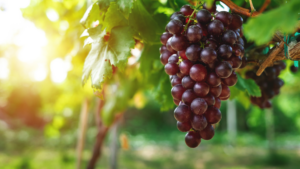Composting is a sustainable practice that can significantly reduce waste and enhance soil health. While many are familiar with composting common organic materials like fruit and vegetable scraps, there are several unconventional items you may not know can also be composted. Let’s explore some surprising items you can compost to further minimize your environmental footprint and create nutrient-rich soil for your garden.
Coffee Grounds
Used coffee grounds are an excellent addition to your compost pile. They provide essential nutrients like nitrogen and potassium, helping to enrich the soil and promote healthy plant growth. Instead of discarding coffee grounds, add them to your compost to enhance soil fertility naturally.
Tea Bags
After brewing your tea, don’t toss the bags! Used tea bags can be composted to add organic matter to your compost pile. Tea leaves are rich in nutrients and can help improve soil structure and moisture retention. Remember to remove any staples or strings from the tea bags before composting them.
Hair and Pet Fur
Believe it or not, hair and pet fur are compostable materials. Both are rich in nitrogen, which is essential for the composting process. Whether it’s human hair or pet fur, consider adding clippings to your compost bin to contribute valuable organic matter to the mix.
Dryer Lint
Dryer lint, composed of fibers from clothing and fabrics, can also be composted. While dryer lint should not comprise a significant portion of your compost, adding small amounts can introduce carbon-rich materials to help balance your compost pile. Use lint from natural fibers and avoid synthetic materials.
Paper Towels and Napkins
Used paper towels and napkins made from unbleached, biodegradable materials can be composted. While composting paper products may not be suitable for all composting systems, they can break down over time in backyard compost bins or piles. Avoid composting paper products contaminated with chemicals or food residues.
Wine Corks
Don’t toss those wine corks! Natural wine corks, made from cork oak tree bark, are biodegradable and suitable for composting. Adding wine corks to your compost pile can help introduce carbon to the mix and aid in the decomposition process.
Composting unconventional items like coffee grounds, tea bags, hair, pet fur, dryer lint, paper towels, napkins, and wine corks can further enhance the sustainability of your composting efforts. By diverting these materials from the landfill and turning them into nutrient-rich soil, you can contribute to a healthier environment and garden. Experiment with composting these surprising items to unlock their benefits and transform your waste into valuable compost for your plants.
Also Read: Navigating the Aftermath: Understanding the Consequences of a Difficult Childhood






